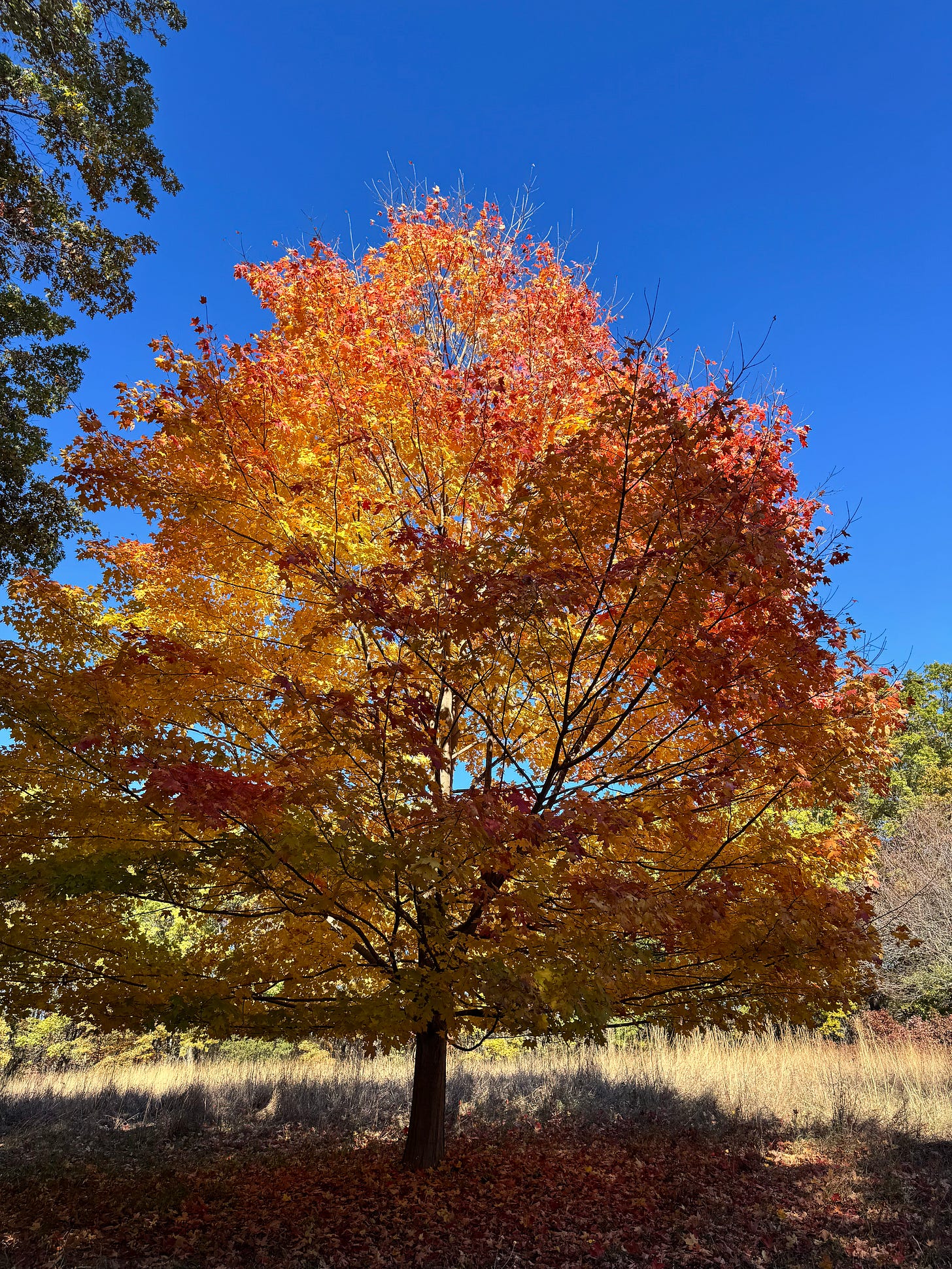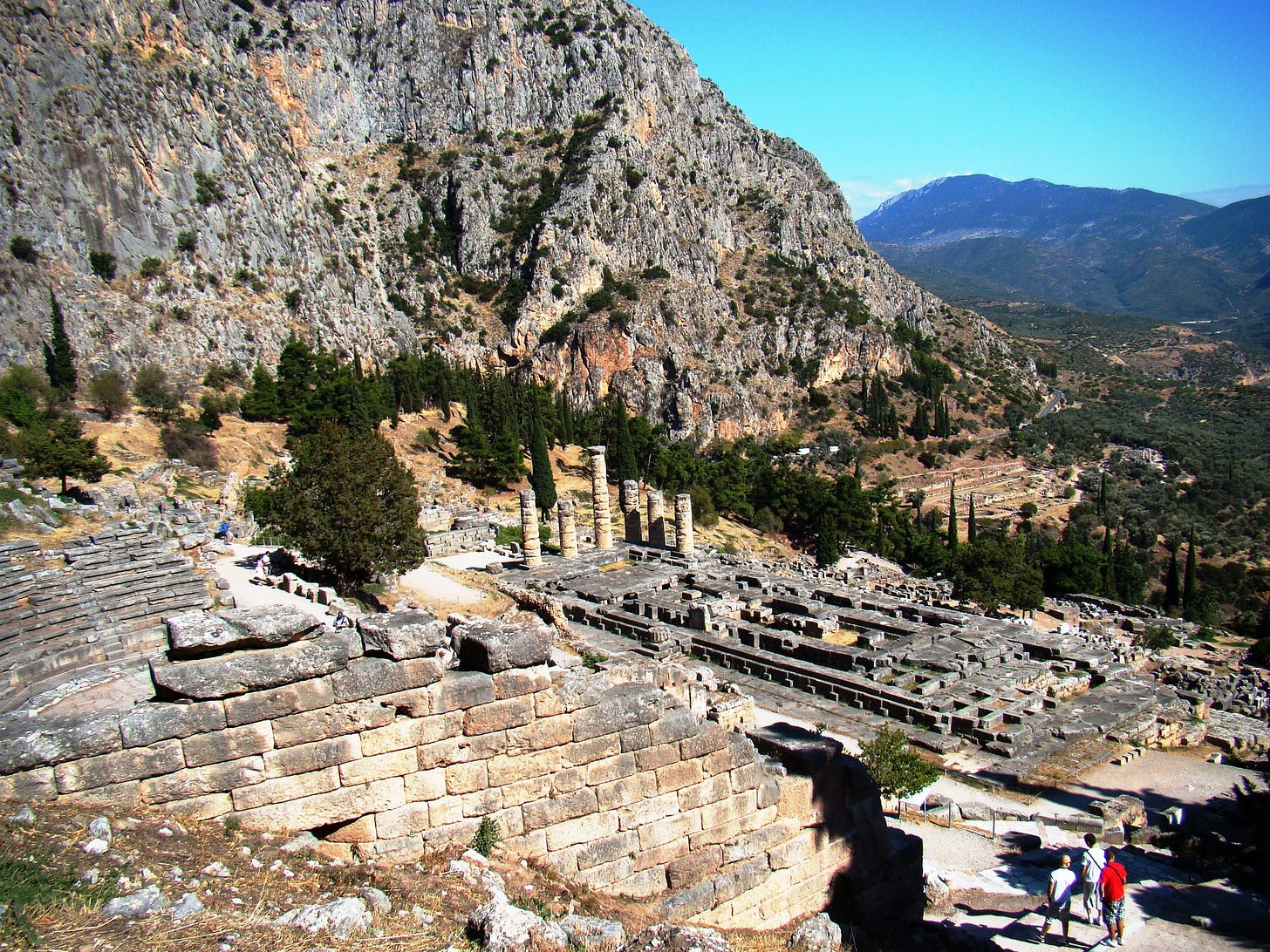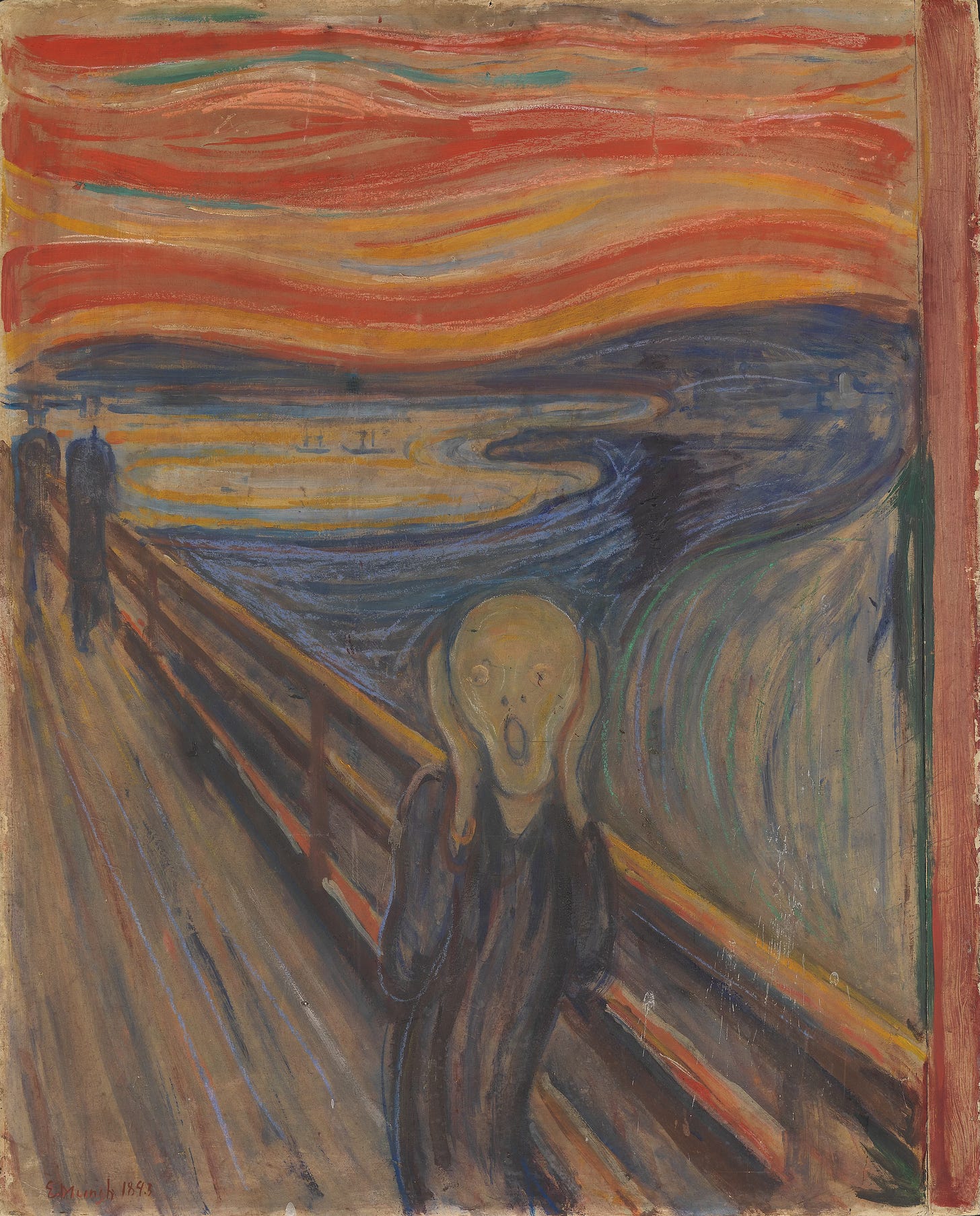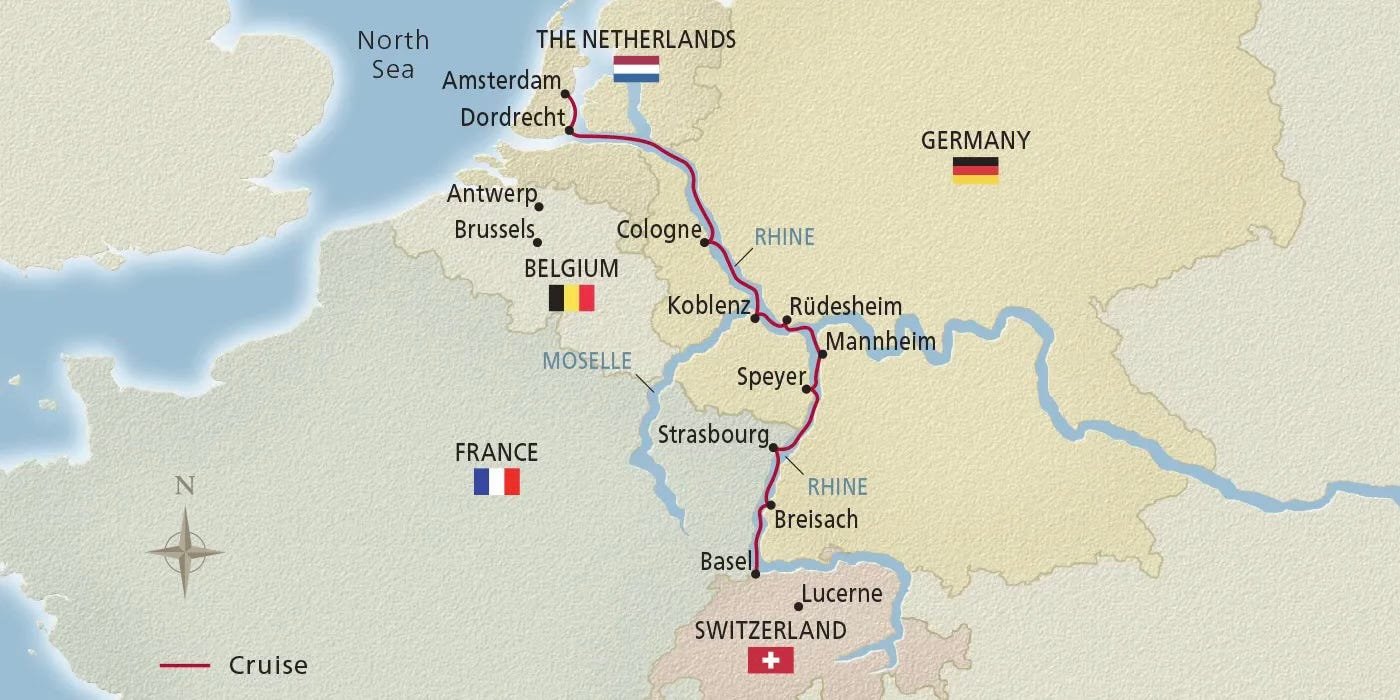The Value of Setting Goals and Objectives: How Exercising our Free Will makes us Happier
What is the chief end of man? Feelings of Authenticity contribute to our Psychological Well-being; My big nightmare.
Last year at this time I wrote three pieces about Free Will, triggered by Determined: A Science of Life without Free Will, by Robert Sapolsky, Penguin Press, 2023:
Do we have Free Will? Challenging Sapolsky with the evolution of morality. November 19, 2024
Free Will or Enslavement? The choice is up to you: A survey of Religion and Philosophy, including Luther, Calvin, Hobbes, James, Fischer and Doyle. November 20, 2024
Wrestling over Free Will: Do we let the Chimp act, or listen to the Sage? Meet Dr. Kevin J. Mitchell. November 21, 2024.
My conclusion was that whether or not we have free will, we must act as if we do, if we want to be happy. This conclusion was bolstered by the book Free Agents: How Evolution gave us Free Will, by Kevin J. Mitchell, Princeton University Press, 2023, discussed in the last post of the above series.
Over the last few months I have been listening to Dr. John Vervaeke’s podcast and YouTube video series, Awakening from the Meaning Crisis, Part One of which is now available in book format.
One of my personal takeaways from Dr. Vervaeke’s excellent podcast is the value of goal setting. When we set goals for ourselves, we provide meaning to our lives which can promote feelings of accomplishment and satisfaction. We engage with the higher levels of our consciousness and, in effect, exercise our free will.
Two recently published studies have shown that people who believe they have free will are happier than those who believe in scientific determinism, fatalistic determinism, or randomness.
The first study, Investigating the relationships of free will belief, presence of meaning in life, and self-consciousness with authenticity: a mixed methods study, Yunus Bayram and Taner Artan was published in Current Psychology, 30 April, 2024.
Authenticity refers to personality and situational characteristics that enhance our psychological well-being.
The value of authenticity in finding truth and happiness is not a new idea.
“Know Thyself” was engraved in golden letters at the entrance of the Temple of Apollo in Delphi. Above are the ruins of that temple. To know yourself is to be authentic.
Aristotle believed “eudaemonia,” meaning “good spirits” or “happiness” was the highest good, which was found by aligning with your true essence, your authenticity.
Meditation practices in Eastern thought attempt to eliminate desires and attachments and focus on the true self as a way to achieve Nirvana.
The Sufi scholar and poet Rumi taught that the quest for self-knowledge was a path to the truth.
The list could go on. But for thousands of years many thinkers in many cultures have emphasized the value of self-awareness and self-knowledge in finding truth, peace, and happiness.
When we are authentic we are real. We are tuned in to the present, not the past. Nor do we worry about the future. We are connected to our feelings, not concerned with the impressions of others. We are self-aware.
The results of the study?
The quantitative analyses revealed a positive association between presence of meaning in life and authenticity, and between free will belief and authenticity.
People who believed that their life had meaning, who believed that they had free will, were more authentic. People who are more authentic had higher levels of self-consciousness. Higher levels of authenticity related to higher levels of happiness.
In other words, if you believe that you have free will, you will be happier than someone who doesn’t.
The second study was The Relationship of Determinism, Free Will and Randomness Beliefs with Authenticity and the Mediating Role of Life Meanings among Young Adults in Türkiye: An Existential Social Work Perspective in Clinical Social Work, Yunus Bayram, Clinical Social Work Journal, 9 April 2025.
It reached similar conclusions:
Free will belief positively predicts authenticity.
Scientific determinism belief negatively predicts authenticity.
Fatalistic determinism belief negatively predicts authenticity.
Randomness belief negatively predicts authenticity.
Presence of meaning mediates the relationship between free will belief and authenticity.
In other words, those people who believe in free will are happier than those who believe they don’t have free will.
There are other studies out there as well. See, e.g., Feldman, G., Farh, J.-L., & Wong, K. F. E. (2017). Agency Beliefs Over Time and Across Cultures: Free Will Beliefs Predict Higher Job Satisfaction. Personality and Social Psychology Bulletin, 44(3), 304-317. https://doi.org/10.1177/0146167217739261 (Original work published 2018)
Fighting the Horror
I recently remembered my first nightmare. I must have been 6 or 7 years old. Do you remember yours? I woke up crying and sobbing, trying to escape a pervasive sense of horror.
In my nightmare I was swinging forever, without stop, suspended from above by a rope-like cord, swinging back and forth, in slow motion. There was another separate sentient being next to me, also swinging.
The swing continued ceaselessly, repetitively, without end, without change, while I hung in the void, nothing below me or around me except another being who was also ceaselessly swinging.
I say “another sentient being” because, like me in the dream, the other “person” swinging next to me had no identity. Just another blob of being suspended in eternity, forever swinging, back and forth, never-ending.
When I would awake from this nightmare I would feel a sense of horror. Horror that there was no meaning in life, no beginning or end, just ceaseless swinging.
I had the dream several times as a child, then it finally stopped, not recurring after the age of 16 or 17.
In the nightmare, which reccurred at least half a dozen times, the swing wouldn’t stop until I woke up. In the nightmare I was doomed to keep on swinging forever in the void, repeating endlessly the same path, back and forth, suspended from above by a giant unknown force.
Above: The Scream, by Edvard Munch, 1893 - National Museum of Norway, Public Domain.
Isn’t this the horror that we all fear? The unspeakable, unbearable horror of meaninglessness? The fear that our lives have no meaning, no purpose? That we have no raison d’être? That we will swing forever in eternity, always prescribing the same arc, no end in sight?
The key is how to address this fear; how to avoid this meaninglessness. For some the answer to the horror is religion. If it works for you, fine. I understand. My parents didn’t quite know what to do to soothe me. The first time I had the nightmare they told me to look to God.
Q. What is the chief end of man?
A. The chief end of man is to glorify God, and enjoy his works forever.
Westminster Shorter Catechism, memorized by all good Presbyterian children.
I followed that path for a while. It remains a legitimate path for many.
But religion never really answered the questions I had. Science chased away the unknown. There was no place for awe and wonder to hide.
I never shared my bad dream with anyone again (until now).
The dreams stopped when I turned 16 or 17. I still was in awe of the universe. But it seemed less and less likely that God was involved in any meaningful way. And where was He or She, by the way?
Sorry, but my brain was built to think, and the more I thought, the less likely it seemed that there was a God. At least one whose existence would make a difference. Evolution, for me, held the key for understanding humanity as thinking, reasoning sentient beings.
Even those who believe in God can have the sense that He’s abandoned you. We’re back on the swing, forever. The nightmare returns.
But the nightmare never returned for me (though I sometimes still dream that I can’t find my college classroom, the semester is almost over, and I never studied).
What changed?
I found my agency in goal setting. I was no longer just swinging, pushed by the winds of chance. My life had direction and purpose.
Here’s my new and improved version of the answer to the question posed by the Shorter Catechism:
Q. What is the chief end of man?
A. The chief end of man is to establish and accomplish worthwhile personal and professional goals while seeking wisdom, truth, justice and beauty.
By the way, curiosity comes in handy, but it’s a trait, not a goal in iteself.
You may ask why set both personal and professional goals?
We are human beings who have certain needs. Those needs require money, unless we’re going to live off the grid. Since we are social animals, living off the grid isn’t really conducive to long term happiness for most of us (though it may work for some).
So that means we need to live in a society. Societies require responsible people. If we have a skill that can enable society to function and flourish, then we have a duty to exercise that skill.
Therefore our goals ought to include professional goals that challenge us to develop our skills and add value to society. In so doing, we will hopefully be rewarded with sufficient financial support to permit us to continue, in a constant feedback loop that proves beneficial to both ourselves and the society that we hopefully enrich.
Goal setting is so powerful. Establishing goals and objectives helps us figure out what is important to us, to our families, and to society. It gives us the tools to realize and exceed our dreams.
Goal setting gives our lives meaning.
If we believe that we have no free will, that we lack agency, it would seem logical that we wouldn’t set goals or objectives. The universe is predetermined, and so is our fate. Life lacks meaning.
But goal-setting gives us agency. When we set and pursue those goals, we affirm that we have free will.
If facts change (they often and most likely will - traffic jams, accidents, illness, whatever) we must remain flexible and simply change or rearrange our goals. We exercise our agency. We reframe the problem and come up with a solution in a flexible and meaningful way.
That’s life. Our ability to make goals, and to change them if necessary, is a result of our evolutionary development. Goal-setting has given us the ability to survive. And it can only be done by exercising our free will.
We’re making our plans for Europe next month. Here’s the route of the trip we’ve chosen:
Amsterdam to Basel - up the Rhine. Hope you’ll be traveling along~!
Discussion: Did you ever have a nightmare? Did it involve a loss of agency, a lack of control? Do you set goals and objectives? I’d love to hear your thoughts in the comments~!
OK, gotta go. I have a goal to take a walk every day and it’s time!
Endnote: Dr. Vernaeke’s thesis has much to offer. Much more than can possibly be covered here. Highly recommended.
Credits: Photo of Delphi by Edward Knapczyk CC.









David, you have written enough thought provoking paragraphs that only a bar like atmosphere and several years of discussions could do them justice. 😂 I will take on a couple. 👉🏻I too have had several variations of the can’t find my classroom dream. I never made much sense of them. 👉🏻On goal setting, I strongly believe one’s personality traits (Myers Briggs) play a huge role in whether goal setting might work. For me, I have only had one life goal, to marry once and it was borne out of my pain for a beloved aunt and uncle who divorced. 👉🏻Although in my life I have tried many paths to freedom only my free will ( yes we have free will) to live in agape love has given me a full life. I believe the need to love and be loved is in our DNA…. there are no work arounds to agape love no matter what your personality type. It’s universal. Thanks for raising up so many questions. Enjoy the day!!!
This is so rich,a real banquet of philosophy. I wasn't going to comment,...but how can I not! What a horrible nightmare. Much worse than my horrible childhood nightmare which I will describe shortly. But I've always done goal setting all my life. I've never had a problem motivating myself which is why I have no patience with older people who say "I'll get bored sat at home all day twiddling my thumbs and not seeing anybody. I want to continue working until I'm 90". I very uncharitably think they are morons and make it hard for everyone else. My sister agrees with me on this. Just lately I've felt like Free Will is an illusion and The Long and Winding Road always takes me back to the same place. My childhood recurring dream. Almost everyone seems to have some version of this experience and there are theories that it could be faint memories from a previous existence. I'm not into a belief in reincarnation but on the other hand if God has fated you to have a horrible life this time round it seems only fair to let you have another go. My dream. I was five years old. I know that. For about a month I had the same dream every night and would call out for Dad who would come into the bedroom I shared with my sister,we shared a bed too,he would hug me,reassure me,calm me down and then I would go off to sleep all right. But one night when I said to my Dad,..."I'm going to die" well he was a very patient man but he must've got to the end of his tether because he snapped,," you're not going to die, you're only 5". So that's how I know. It shocked me a bit but it stopped the dream. THE DREAM. It.felt totally realistic. I hadn't been to school. I didn't know any history..I was ME but somehow I also knew I was a slim young woman with long blonde hair braided in a long plait. I also knew, felt,that I was stood straight and immobile at a wooden pole and my hands were secured,tied,behind the pole,and I was aware in my dream that a whole huge lot of people were spread all around,all looking at me and they were going to joyfully celebrate my death. That was actually the bit that hurt most. That was when I'd wake up. I have actually wondered now and then if maybe I was burned at the stake in another life. No not as Joan of Arc. Maybe some peasant girl in a village near Carcasonne or such. The thing is the imagery in the dream I'd not been exposed to by education or books. And it was so real. And the sense of extinction but compounded by the bitter sense of the joy my death would engender in the witnessing crowd.
I do believe in Free Will but maybe like Robert Frosts two woodland paths both take you to the same place but by different routes.